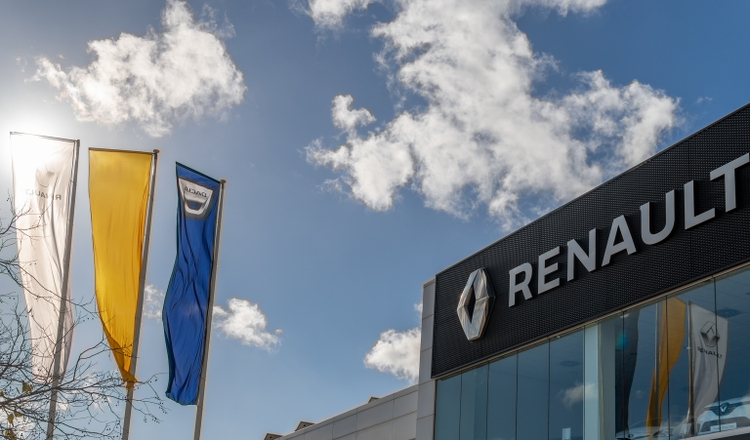Neme Jimenez/iStock Editorial via Getty Images
This is not the first time that we are commenting about Renault (OTCPK:RNSDF) (OTCPK:RNLSY) and Nissan (OTCPK:NSANF) (OTCPK:NSANY). Both companies are very much related and share equity capital and future investments. Indeed, together with Mitsubishi Motors they created an Alliance called the “Best of 3 Worlds for a New Future“. Here at the Lab, we already analyzed the joint roadmap. The Alliance’s aim is related to mobility connection, batteries, and electric vehicle production. Due to the significant investment required, numbers in hand, the three corporations will dedicate CAPEX investment for approximately €23bn in the following 5 years, launching 35 new models of electric vehicles by 2030. They are aiming to use common platforms to reach at least 80% of share production capacity in 2026 as well as they “expect to have more than 10 million vehicles on the road across 45 Alliance models equipped with autonomous driving systems”. This will be coupled with an equal cloud system and the same supplier in the battery supplier, with the intention to reduce costs with economies of scale.
According to the Financial Times, over this weekend, Renault’s CEO Luca de Meo is flying to Tokyo where he will meet Nissan’s number one, Makoto Uchida. On the table are several important dossiers that gravitate around the Renaulution plan, conceived by the Italian manager to relaunch the transalpine group and accelerate its electrical transition. The future structure of the Renault-Nissan collaboration and its survival will depend on the outcome of the talks.
So, what might happen?
The thorniest issue probably concerns Geely’s role in Renault’s division dedicated to the production of ICE engines. As already known, the division is intended for spin-off into a new company that will group the manufacturer’s plants outside of France. Through Aurobay, a joint venture with Volvo, Geely would have expressed an interest in acquiring 40% in order to pool current skills and future investments in endothermic technologies. However; the deal’s green light requires Nissan’s consent which seems reluctant to grant it. The company would be opposed to sharing know-how with the Chinese company Geely due to the high investment in terms of time and money from the Franco-Japanese alliance.
The second item on the agenda will be the spinoff of Renault’s electrical and digital activities, the second pillar of the de Meo plan. The Italian manager is looking for financial support from Nissan, which would be available as long as some intellectual property issues are resolved. However, it is likely that the question is linked to the previous one and with it must find a satisfactory settlement for both parties.
Since 2018 end, relations between Renault and Nissan have deteriorated and the Carlos Ghosn scandal was not supportive. The latest negative sign was dated just a month ago when the Yokohama house announced that will no longer produce the cylinder heads of the Renault thermal engines, which are currently manufactured in Sunderland. Right now, Nissan could take advantage of the talks to bring an old request back to the table, i.e., a change in the shareholding structure.
Conclusion
Under the agreements signed in 1999, at a time of great difficulty for Nissan, Renault holds a 43% stake in the Japanese ally. Instead, the latter’s share in the capital of the French company is limited to 15%, devoid also of voting rights. In the past, Nissan has asked several times to renegotiate the agreement terms and has always received a refusal from Renault. However, De Meo appears more open than his predecessors toward an alliance revision, with the aim of safeguarding an industrial collaboration that is essential to support investments in electricity. According to rumors, negotiations could last for a month and would include the option of a Renault drop in the shareholding from an equity share of 43% to 15%. Renault and Nissan Motor confirm that they are “confidently discussing” the future of their alliance. The Japanese partner is considering investing in the future electric vehicle division of the French carmaker with a trade of Renault between additional CAPEX investment and lower dividend payments.
Most likely the time has come for Nissan to stand up. The Japanese company is structurally more solid and despite de Meo being a great CEO, Renault Group serves Nissan more than the other way around. This talk outcome might reverse Renault’s alliance power, and even if we were positively impressed by the French company’s business improvement and 2022 guidance upgrade (following half-year results), we decide to remain neutral. We are more positive about Nissan, here is our latest publication: FX Might Support Its Sales Exports. However, here at the Lab, our preferred auto company is Volkswagen/Porsche.


Be the first to comment